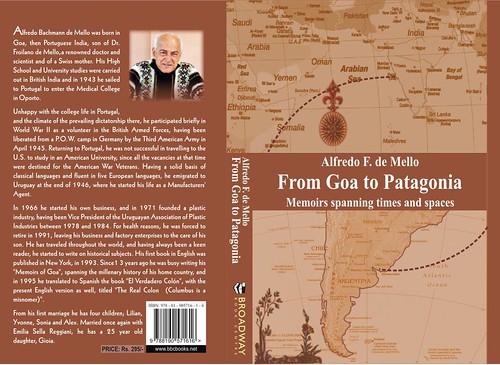Growing up in the 1980s in Goa from time to time I would hear
the more vociferous men in my family swear: “These bloody Indians!” Attending
school where a steady diet of Indian nationalism was a part of the curriculum, we
youngsters would be horrified. Surely, these figures of parental authority
couldn’t speak like they did? Besides, weren’t we Indian? It was at this early
age that I realised that to be Goan is not the same as being Indian. And it was
possible for Goan history to read Indian nationalism differently. I have spent
the rest of my life trying to figure the differences out.
A politicised Goan, such as myself, looks on this season, where
allegations of being anti-national are being flung like confetti, with some
cynicism. Not unlike Muslims in India, Goans, and especially Goan Catholics, have been used to be seen as de-nationalised, if not
anti-national, for a while now. This critical evaluation has only heightened
since some years when it came to be understood that many Goans have been
“giving up” Indian nationality for Portuguese citizenship.
A common misunderstanding of the situation in Goa is that this devolution of the Indian passport has to do with pride in their Portuguese connection, and an application for citizenship. Appreciating the nuances of the situation requires disabusing a number of misunderstandings.
Indeed, so
dramatically different was the situation in British India from that which
obtained in Portuguese India that Goans were often able to assert themselves against
the British. Take, for example, this anecdote from the city of Bangalore in the
year 1940. In his memoirs, From Goa to Patagonia: Memoirs spanning times and spaces (2006: 146), Alfredo de Mello
recounts his altercation with a Revered Xavier who had recently joined the
staff of the famous Bishop Cotton’s school:
“One evening, while the Cotton's Cadets were drilling in the field with their 1914 vintage rifles and polished bots, Rev. Xavier and I were watching them and he remarked; ‘How come you are not marching with them?’, and I replied: ‘I am a foreigner, Sir, belonging to a neutral country’, and Rev. Xavier, in a tone that dripped with contempt, retorted: ‘Why don't you become a British subject? Don't you know that we are the salt of the earth?’
Trying to control my nerves and smarting under such a presumption, I said, ‘I am a Portuguese citizen, Sir, and not a subject like yourself. Furthermore …[e]very dog has its day. Portugal had its glorious quarter of an hour in History, as a world power, in the sixteenth century, and yours is about to end’.”
The recovery of this right lay somewhat dormant from 1975 until
recently. It was with Portugal joining the European Union that a Portuguese
passport gained a completely new significance. If there are so many persons
queuing up to assert their right to a Portuguese passport, it thus has less to
do with Portuguese nationalism, though this cannot be discounted in some cases,
and more to do with making an economic choice.
The assertion of this right by citizens of the former EI has
upset nationalists both in Portugal and in India. Some Portuguese nationalists
desire that this right be curtailed or withdrawn entirely. Portuguese
citizenship, they argue, should be given only to those who speak the Portuguese
language, know something of Portuguese history, and have a love for Portugal.
Like most nationalistic assertions often tend to be, these too are offensive. Citizenship
is not a gift given for good behaviour, it is a fundamental right, and such
rights are sacrosanct. They cannot be withdrawn on the basis of some petty excuse.
Further, one could argue that the retention of the right to Portuguese
citizenship is a part of post-colonial justice.
To the question what do citizens of the former EI think of
nationalism, the response would be why should they think of nationalism? They
are thinking of their economic futures, and asserting their rights, and this is
far more important than any nationalism.
(A version of the post was first published in the Indian Express on 28 Feb 2016)



.png)





